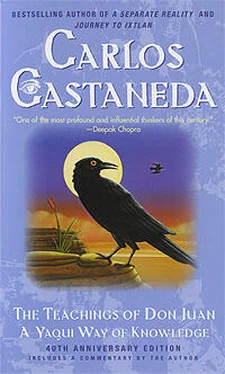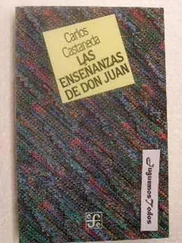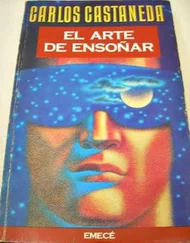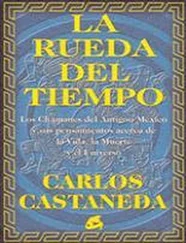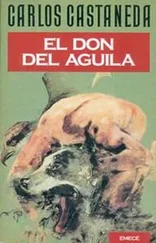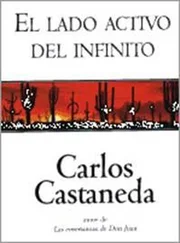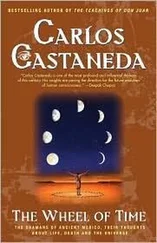The states of non-ordinary reality. — The two plants in which the allies were contained, when used in conformity with the allies' respective rules, produced states of peculiar perception which don Juan classified as meetings with the ally. He placed extraordinary emphasis on eliciting them, an emphasis summed up in the idea that one had to meet with the ally as many times as possible in order to verify its rule in a pragmatic, experimental manner. The assumption was that the proportion of the rule that was likely to be verified was in direct correlation with the number of times one met with the ally.
The exclusive method of inducing a meeting with the ally was, naturally, through the appropriate use of the plant in which the ally was contained. Nonetheless, don Juan hinted that at a certain advanced stage of learning the meetings could have taken place without the use of the plant; that is to say, they could have been elicited by an act of volition alone.
I have called the meetings with the ally states of non-ordinary reality. I chose the term 'non-ordinary reality' because it conformed with don Juan's assertion that such meetings took place in a continuum of reality, a reality that was only slightly different from the ordinary reality of everyday life. Consequently, non-ordinary reality had specific characteristics that could have been assessed in presumably equal terms by everyone. Don Juan never formulated these characteristics in a definite manner, but his reticence seemed to stem from the idea that each man had to claim knowledge as a matter of personal nature.
The following categories, which I consider the specific characteristics of non-ordinary reality, were drawn from my personal experience. Yet, in spite of their seemingly idiosyncratic origin, they were reinforced and developed by don Juan under the premises of his knowledge; he conducted his teachings as if these characteristics were inherent in non-ordinary reality: (1) non— ordinary reality was utilizable; (2) non-ordinary reality had component elements.
The first characteristics — that non-ordinary reality was utilizable — implied that it was fit for actual service. Don Juan explained time and time again that the encompassing concern of his knowledge was the pursuit of practical results, and that such a pursuit was pertinent in ordinary as well as in non-ordinary reality. He maintained that in his knowledge there were the means of putting non-ordinary reality into service, in the same way as ordinary reality. According to that assertion, the states induced by the allies were elicited with the deliberate intention of being used. In this particular instance don Juan's rationale was that the meetings with the allies were set up to learn their secrets, and this rationale served as a rigid guide to screen out other per— sonalistic motives that one may have had for seeking the states of non-ordinary reality.
The second characteristic of non-ordinary reality was that it had component elements. Those component elements were the items, the actions, and the events that one perceived, seemingly with one's senses, as being the content of a state of non-ordinary reality. The total picture of non-ordinary reality was made up of elements that appeared to possess qualities both of the elements of ordinary reality and of the components of an ordinary dream, although they were not on a par with either one.
According to my personal judgement, the component elements of non-ordinary reality had three unique characteristics: (1) stability, (2) singularity, and (3) lack of ordinary consensus.
These qualities made them stand on their own as discrete units possessing an unmistakable individuality.
The component elements of non-ordinary reality had stability in the sense that they were constant. In this respect they were similar to the component elements of ordinary reality, for they neither shifted nor disappeared, as would the component elements of ordinary dreams. It seemed as if every detail that made up a component element of non-ordinary reality had a concrete— ness of its own, a concreteness I perceived as being extraordinarily stable. The stability was so pronounced that it allowed me to establish the criterion that, in non-ordinary reality, one always possessed the capacity to come to a halt in order to examine any of the component elements for what appeared to be an indefinite length of time. The application of this criterion permitted me to differentiate the states of non-ordinary reality used by don Juan from other states of peculiar perception which may have appeared to be non-ordinary reality, but which did not yield to this criterion.
The second exclusive characteristic of the component elements of non-ordinary reality — their singularity — meant that every detail of the component elements was a single, individual item; it seemed as if each detail was isolated from others, or as if details appeared one at a time. The singularity of the component elements seemed further to create a unique necessity, which may have been common to everybody: the imperative need, the urge, to amalgamate all isolated details into a total scene, a total composite. Don Juan was obviously aware of that need and used it on every possible occasion.
The third unique characteristic of the component elements, and the most dramatic of all, was their lack of ordinary consensus. One perceived the component elements while being in a state of complete solitude, which was more like the aloneness of a man witnessing by himself an unfamiliar scene in ordinary reality than like the solitude of dreaming. As the stability of the component elements of non-ordinary reality enabled one to stop and examine any of them for what appeared to be an indefinite length of time, it seemed almost as if they were elements of everyday life; however, the difference between the component elements of the two states of reality was their capacity for ordinary consensus. By ordinary consensus I mean the tacit or the implicit agreement on the component elements of everyday life which fellow men give to one another in various ways. For the component elements of non-ordinary reality, ordinary consensus was unattainable. In this respect non-ordinary reality was closer to a state of dreaming than to ordinary reality. And yet, because of their unique characteristics of stability and singularity, the component elements of non-ordinary reality had a compelling quality of realness which seemed to foster the necessity of validating their existence in terms of consensus.
The specific purpose of the rule. — The other component of the concept that the rule was verified in non-ordinary reality was the idea that the rale had a specific purpose. That purpose was the achievement, by using an ally, of a utilitarian goal. In the context of don Juan's teachings, it was assumed that the rale was learned by corroborating it in ordinary and non-ordinary reality. The decisive facet of the teachings was, however, corroboration of the rale in the states of non-ordinary reality; and what was corroborated in the actions and elements perceived in non-ordinary reality was the specific purpose of the rale. That specific purpose dealt with the ally's power, that is, with the manipulation of an ally first as a vehicle and then as a helper, but don Juan always treated each instance of the specific purpose of the rule as a single unit implicitly covering these two areas.
Because the specific purpose referred to the manipulation of the ally's power, it had an inseparable sequel — the manipulatory techniques.
The manipulatory techniques were the actual procedures, the actual operations, undertaken in each instance involving the manipulation of an ally's power. The idea that an ally was mani— pulatable warranted its usefulness in the achievement of pragmatic goals, and the manipulatory techniques were the procedures that supposedly rendered the ally usable.
Читать дальше
